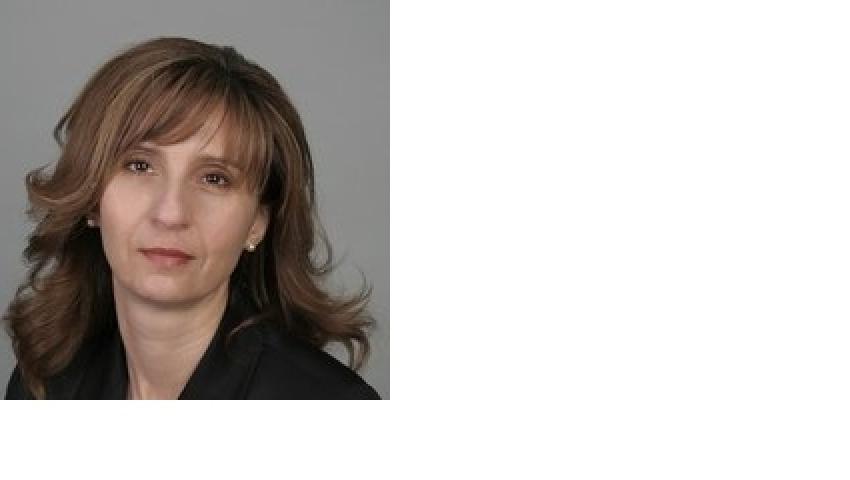Tsvetanka Todorova: A small part of the plastic is still being replaced by compostable materials
I would say that business measures are being closed by force, so incentives are needed, according to the chairman of the Branch Association

We are talking to Tsvetanka Todorova, Chairman of the Board of the Polymer Branch Association, about the ban on the most common types of disposable plastics from July 3. These are cutlery (forks, knives, spoons and sticks), plates (including plastic paper plates), straws (except for medical purposes), beverage stirrers, balloon handles, ear sticks (excluding those used for medical purposes). They need to be replaced by reusable alternatives. Disposable cups and food boxes are not completely banned, they will have a short transition period until 2029. What are the challenges for plastic processors and traders and are they prepared with alternatives, what incentives are needed for business and what are the uncertainties surrounding the ban?
Ms. Todorova, what did you propose to the Ministry of Environment and Water to be included in the Bulgarian ordinance banning several types of single-use plastic products from July?
First of all, we wanted the directive to be properly implemented without ambiguity. It is very important to refine the definition of placing on the market, because there are products that were manufactured before the third of July. What do we mean by placing on the market or when the goods pass from the manufacturer to the trader. We propose that the first placing on the market be considered for the whole of the EU, not to restrict the free movement of goods. While, for example, the EC Directorate General for the Environment (DG Environment) has to be placed on the market for each individual country, but this means that the free movement of goods is hindered.
At European level, are there countries that are ahead of the implementation of bans on single-use products?
They have not been ahead of it, but have previously introduced such restrictions because the guidelines for the implementation of the directive are not a legislative act but a recommendation. These are guidelines for the correct application of the legislation. There are European countries that have harmonized the legislation, for example France has already drafted legislation.
Do Bulgarian companies manage to switch to the production of such compostable materials?
Companies have been making industrial tests with such compostable polymers for more than a year since the directive was discussed. There are already straws and utensils. The directive states that polymers that are not chemically modified and occur naturally in nature can be used. In reality, there are no such polymers and there is no way to produce products that are made of natural polymers. Now everyone is waiting to see what is included in the final version of the guidelines and how this will be reflected in our legislation.
How is it switching to new production, what does the industry look like at the moment, what part of the products they produce are already with compostable materials?
Still a relatively small part, because firstly the market is not used to them, secondly they are 2-3 times more expensive than normal polymers and still require some marketing and market enforcement. Definitely already made in small quantities, but demand is weak.
Is it possible to introduce a product fee for glasses or plastic bottles at some time?
For plastic bottles rather not, because there are obligations to constantly increase the recycling rate. Mechanisms must be put in place to collect them and increase the percentage of recycled content. But the question arises as to how the quantity and quality of recycling is controlled and how many times it can be recycled. And now some bottle manufacturers are using recycled material. The point is that it must be clean enough not to compromise either the qualities or the hygienic properties of the bottle itself. These recyclates must meet the performance of the primary polymers. The point is that the requirements for increasing use of recycled material will be difficult to track the quantity and especially the quality of recycling.
For the glasses, I guess a product fee will be introduced. One of the goals is to reduce the amount of glasses, and one of the mechanisms is actually just that.
But that's not exactly what happened with the bags, do people pay for the bags and use them?
In fact, there is definitely a reduction in the consumption of bags. The very fact that you have to pay in the store makes you think about whether to take a reusable bag from home. This is the purpose of the glasses, which means that such a measure will probably be introduced for them as well. extended producer responsibility. According to the new Law on Waste Management, which was submitted to the parliament by “Stand up. It is envisaged that the funds raised from extended producer responsibility will be set aside for information campaigns to be carried out by recovery organizations. It is more important for industry organizations like ours to be able to run such campaigns, because the things we can say in these campaigns are clearer and more professional. In this regard, we have also suggested to the Ministry that there be an opportunity for wider information campaigns, which we should do in connection with the bans on the use of disposable products. But we will see what they will provide in the ordinance.
